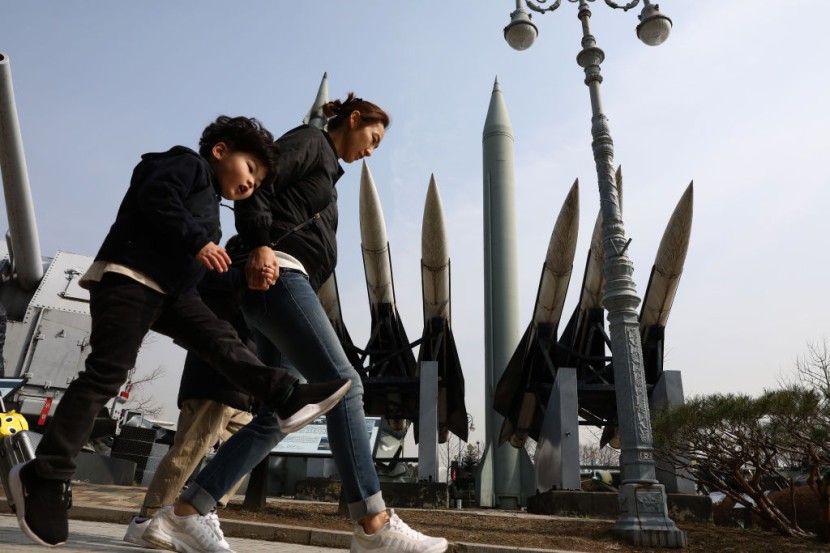
For the first time since the Cold War, the global nuclear arsenal and the risk of such weapons being utilized will increase in the coming years, according to an international think tank's prediction.
The Russia-Ukraine war and Western support for Kyiv have increased tensions among the world's nine nuclear-armed powers, per the new study released Monday by the Stockholm International Peace Research Institute (SIPRI). The Guardian reported.
While the number of nuclear weapons decreased marginally between January 2021 and January 2022, SIPRI warned that unless nuclear countries took quick action, global warhead stocks could soon start to go up for the first time in decades.
SIPRI's research indicated the number of nuclear warheads in the world decreased from 13,080 in January 2021 to 12,705 in January 2022. Around 2,000 warheads - almost all belonging to Russia or the US - were stockpiled in a high-readiness state.
According to Wilfred Wan, the director of SIPRI's weapons of mass destruction program, all the states with nuclear arms "are increasing or upgrading their arsenals," and the majority of them "are sharpening nuclear rhetoric and the role nuclear weapons play in their military strategies."
"This is a very worrying trend," Wan stated in the SIPRI's 2022 yearbook.
Which Country Has The Most Nuclear Weapons?
Russia currently holds the record of the country with the largest nuclear arsenal with a total of 5,977. The United States comes in second place with 5,427. The two countries control more than 90% of the world's nuclear weapons, yet according to the latest estimate, China is in the midst of a missile silo development, with more than 300 additional missile silos.
China, France, Russia, the United Kingdom, and the United States, all nuclear-weapon states, proclaimed their intention to take action against the spread of nuclear weapons at the start of the year.
In a joint statement in January, the US emphasized that "nuclear war cannot be won and must never be waged."
However, according to SIPRI, all five countries have since expanded or modernized their arsenals. Al Jazeera reported that in the course of its actions in Ukraine, Russia has even openly threatened the use of nuclear weapons.
The other nuclear-armed states - India, Israel, North Korea, and Pakistan - have all recently developed or deployed new weapon systems, according to the think tank. Israel has never admitted to possessing such weapons, though.
SIPRI board chair and former Swedish prime minister Stefan Lofven noted: "Relations between the world's great powers have deteriorated further at a time when humanity and the planet face an array of profound and pressing common challenges that can only be addressed by international cooperation."
A Flashback To 1980s Cold War
The quantity of nuclear weapons around the globe has been continuously dropping for decades. It's now less than a fifth of what nuclear nations had in their arsenals during the Cold War's peak in the 1980s. SIPRI, though, had already detected a shift toward more sophisticated nuclear weapons in 2021.
The 1962 Cuban Missile Crisis was a key point in the Cold War when Soviet leader Nikita Khrushchev learned of an American attempt to overthrow Fidel Castro's dictatorship and equipped Cuba with nuclear warheads aimed at the US, per ABC.
In the 1980s, the Cold War reignited as US President Ronald Reagan waged war on what he perceived as the evil of communism.
Subsequently, the tension between the US and Russia intensified, prompting both countries to increase their respective stockpiles of nuclear warheads by tens of thousands.
In the late 1980s, the two countries had about 68,000 nuclear warheads between them.








